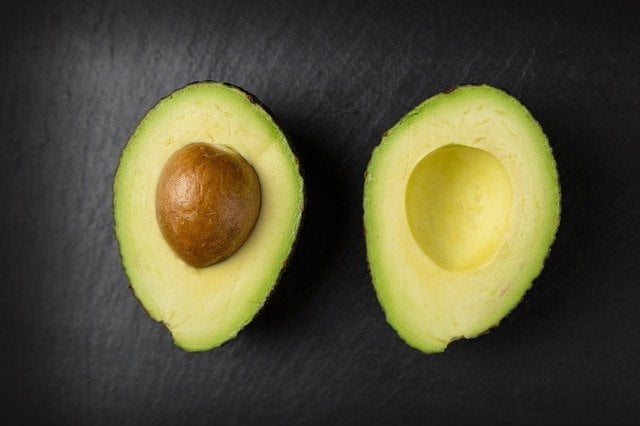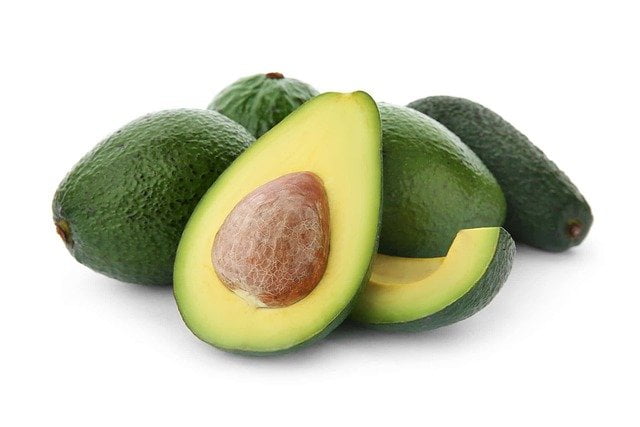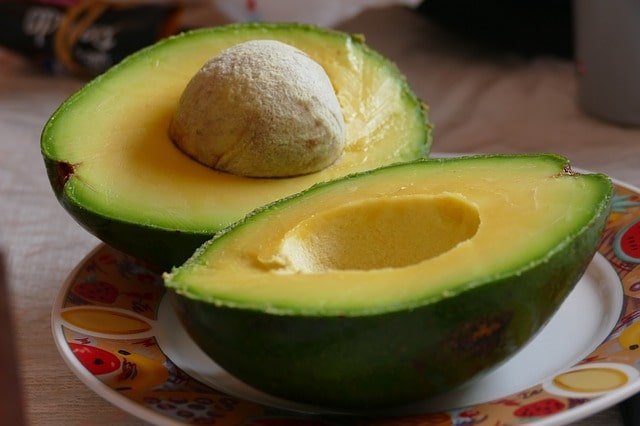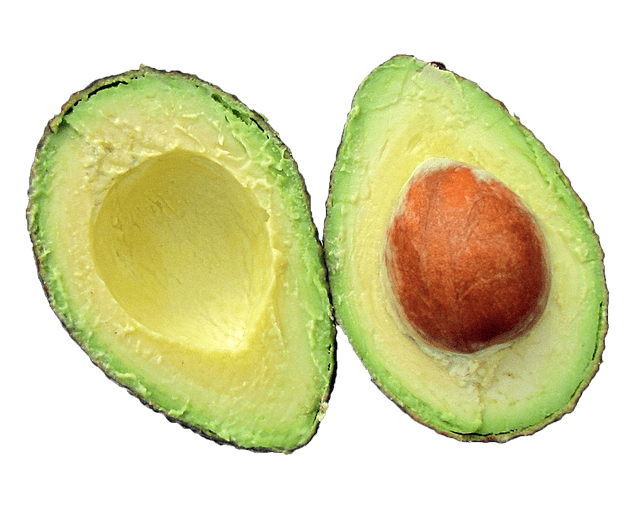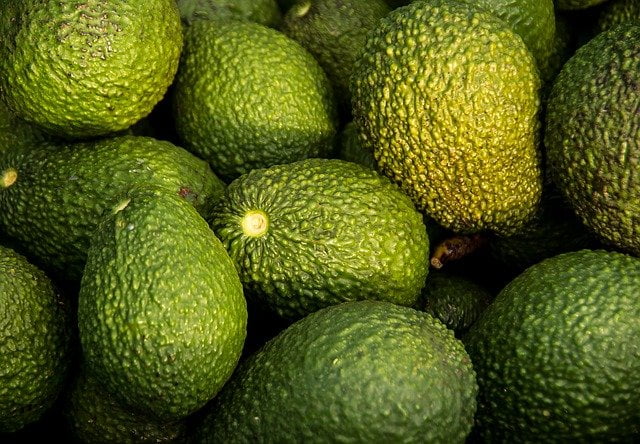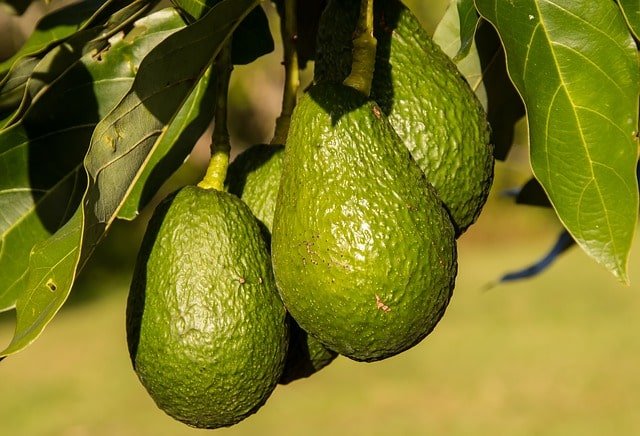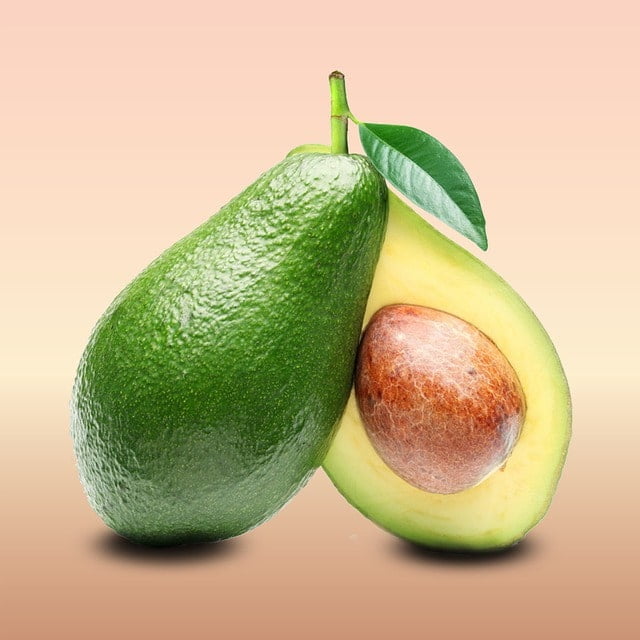What is Avocado Fruit?
Avocados are nutritious, multifunctional, and delectable, and are now a culinary staple in several families worldwide.
While some perceive avocados to just be fruits as well as others to be vegetables, avocados have been technically classified as berries. They belong to the Lauraceae family of plants, which also contains the cinnamon plant (1).
The scientific name of avocado is Persea Americana.
Although avocados are indigenous to Mexico as well as Central America, they are grown in many parts of the world, even in North America.
In the U.S., California is indeed the leading producer of those. There are more than five thousand avocado growers inside the state, which keep producing more than four hundred million pounds of these fruits every year, making this state (Fallbrook, California) the avocado capital of the world (2).
Mexico is the major producer of avocado in the world; followed by the Dominican Republic, Peru, and Columbia.
Avocado is available in about 80 varieties (from black to green and from pear-shaped to round) and among these Hass avocado is the most common.
These fruits are utilized in recipes including salads, tacos, guacamole, and more.
Avocados are immensely beloved in the fitness & wellbeing community due to their high nutritional content and numerous health advantages.
What are the Nutrition Facts (Value) of Avocado Fruit?
Avocado is a highly nutritious fruit and its nutrition facts (value) are as under:
| Nutritional Value per 100 gram of raw avocado (3) | |
| Energy | 160 Kcal |
| Water | 73.2 g |
| Carbohydrates | 8.53 g |
| Sugars | 0.66 g |
| Dietary fiber | 6.7 g |
| Protein | 2 g |
| Fat | 14.7 g |
| Minerals | |
| Sodium | 7 mg |
| Calcium | 12 mg |
| Potassium | 485 mg |
| Iron | 0.55 mg |
| Magnesium | 29 mg |
| Phosphorus | 52 mg |
| Zinc | 0.64 mg |
| Manganese | 0.142 mg |
| Copper | 0.19 mg |
| Flouride | 7 mcg |
| Vitamins | |
| Vitamin A, RAE | 7 mcg |
| Vitamin B1 (Thiamine) | 0.067 mg |
| Vitamin B2 (Riboflavin) | 0.13 mg |
| Vitamin B3 (Niacin) | 1.74 mg |
| Vitamin B5 (Pantothenic acid) | 1.39 mg |
| Folate | 81 mcg |
| Vitamin C | 10 mg |
| Vitamin E | 2.07 mg |
| Vitamin K | 21 mcg |
So you can notice that avocados are extremely nutritious fruits that contain a high concentration of beneficial fats and fiber, as well as a variety of minerals (like calcium, zinc, potassium, phosphorus, magnesium, etc.) and vitamins (like vitamin E, vitamin C, folate, etc.)
Nutritional deficiencies in many modern meals can be resolved by eating a variety of fruits and vegetables, avocados are one of these fruits.
What are the Uses and Health Benefits of Avocado Fruit?
Friends, below I am explaining to you the 13 Uses and Health Benefits of Avocado Fruit:
1) Avocado is Excellent for Your Gut Health
Avocados are rich in fiber, with around 14.7 grams per 100 grams. That is about 50% of the recommended daily value (DV) for this essential nutrient (3).
Having adequate fiber in your meal is vital for the functioning of your digestive system because it encourages the growth of good bacteria.
A study conducted on 163 adults, has shown that people who ate 175 grams (men) or 140 grams (women) of avocado a day for 12 weeks had reduced fecal bile acid densities and more bacteria than people who didn’t eat avocado (4).
Increased bile acid levels cause intestinal inflammation and are also connected with the proliferation of microorganisms linked to adverse health consequences such as colon cancer (5).
This isn’t all: The avocado contains more microorganisms Lachnospira, Faecalibacterium, as well as Alistipes, which all make SCFAs (short-chain fatty acids) like butyrate.
SCFAs help colon cells grow and fight diseases like colorectal cancer and inflammatory bowel disease (6, 7).
Additionally, take into account that fiber-rich meals, such as fruits, veggies, nuts, as well as seeds, are essential for your gut’s health. Consuming a range of fiber-rich foods, not only avocados, is crucial for digestive health.
2) It May Provide Relief in Osteoarthritis
Plant foods like avocados, soy, etc. contain saponins. These substances may have a favorable effect on symptoms of hip and knee osteoarthritis. Though, researchers have not yet established the long-term effects of saponins in people suffering from osteoarthritis.
3) Avocado May Promote Heart Health
Eating nutrient-dense fruits such as avocados on a routine basis may help to prevent heart disease.
Avocados are rich in vitamins, minerals, fiber, and good fats, all of which contribute to the cardiovascular system’s wellness.
A diet high in avocados may help reduce the chance of heart problems, according to a study.
Numerous researches on the impact of this fruit on cardiovascular health have been financed by the Hass Avocado Board. While this does not invalidate study conclusions, some experts believe that industry participation in peer-reviewed work may distort results (8).
Studies have shown that this fruit is helpful in raising HDL cholesterol (which is good for the heart), and also lowers levels of LDL cholesterol, which is linked with the risk for the accumulation of plaque around artery walls or atherosclerosis (9, 10).
Additionally, avocados’ high potassium, as well as magnesium levels, helps to regulate blood pressure. Maintaining normal blood pressure is essential to avoid heart problems.
4) Avocado May Improve Bone Health
It contains boron, which is a mineral that may enhance calcium absorption and improve bone health (19).
Also, Avocado is rich in vitamin K, which plays a key role in bone health. This vitamin has osteoprotective benefits and boosts bone formation (20). Consuming sufficient vitamin K can support your bone health by increasing calcium absorption and lowering the urinary excretion of calcium.
5) Avocado is an Excellent Source of Antioxidants & Anti-Inflammatory Compounds
Apart from vitamins, minerals, fiber, and good fats, avocados are also rich in bioactive compounds like phenolic compounds, carotenoids, vitamin E, and vitamin C (11).
These compounds have been demonstrated to possess notable antioxidant, cardioprotective as well as neuroprotective properties.
Carotenoids contained in avocados, such as lutein, α-Carotene, and β-Carotene have been proven to have potent antioxidant properties, guarding against oxidative stress, which in turn has been linked to the development of numerous chronic illnesses (12).
Avocados are abundant in antioxidants, thus eating them consistently may help to boost your body’s antioxidant capacity.
According to a study conducted on 45 people consuming one avocado daily raised blood concentrations of the carotenoid lutein in comparison to eating a standard Western diet devoid of avocado (9).
Additionally, increased dietary intake and higher blood levels of antioxidants (such as vitamin C as well as carotenoids) due to consumption of avocados, have been linked to heart wellness and enhanced cognitive performance.
6) Avocado May Prevent Cancer
Avocados contain a specified lipid called avocatin B, and it was found in a study that avocatin B fights with leukemia stem cells that may cause a deadly form of cancer (21).
Another study has shown that an avocado extract had inhibited the growth of prostate cancer cells. This was due to the presence of monounsaturated fat, which, along with other phytochemicals in this fruit, can contribute to the reduction of cancer risk (22).
Individual and combinations of phytochemicals in avocados were found to inhibit cancer cell growth and induce apoptosis in precancerous and cancer cell lines (23).
A review published in 2013 highlighted the potential benefits of eating avocado in relation to oral, breast, and throat cancers (24). Although, these suggestions are typically the result of test-tube studies, not of controlled human trials. So, further research is required to confirm these suggestions.
7) Avocado May Help in Maintaining a Healthy Body Weight
While several variables impact weight, keeping a nutritious as well as a balanced diet is likely the most essential factor in achieving and keeping an ideal body weight, which in turn is crucial to avoid diseases.
While avocados are rich in calories, these are nutrient-dense and aid in satiety due to their high fiber and beneficial fat content.
According to research, eating a diet high in fibrous foods such as fruits and vegetables may aid in weight loss. Additionally, persons who consume more fiber manage to maintain a healthy body weight than those who consume less fiber (13, 14).
A study conducted on 345 people, revealed that fiber consumption was the most important indicator of body weight, regardless of calories and macronutrient consumption (15).
Additionally, some studies have linked avocado consumption to increased satiety, weight reduction, as well as reduced belly fat.
The Hass Avocado Board pays for most studies that look into how eating avocados can help people lose weight. Again, while this does not invalidate study findings but financing by the food sector may have an effect on study outcomes.
It is apparent that increasing fiber-rich diets help in weight reduction through increasing satiety. Thus, increasing the consumption of high-fiber fruits such as avocados may indeed be a wise decision for people trying to lose or maintain weight.
8) It May Enhance Cognitive Function
The monounsaturated fats present in avocados can encourage your cognitive function. Vitamin E present in this fruit can be the reason behind its cognition-enhancing effects. This vitamin was found to reduce cognitive decay in the elderly (25).
A study has also suggested that vitamin E can offer the maximum antioxidant protection against Alzheimer’s disease. Being a good source of this vitamin, avocado can play a significant role here (26).
9) Its A Good Choice for Pregnant Women & Breastfeeding Mothers
Friends, nutritional requirements significantly rise during pregnancy as well as during breastfeeding.
For instance, during pregnancy:
- Folate need jump to 600 mg (from 400 mg).
- Vitamin C requirements rise to 85 mg (from 75mg)
Folate requirements greatly rise during pregnancy. But unluckily many pregnant women worldwide do not consume enough folate, which may raise their risk of pregnancy-related complications (16, 17).
Friends, 1 avocado contains 27% of the daily folate requirement for pregnant women (3).
Avocados can indeed help you meet recommended dietary requirements for nutrients (like vitamin B-6, vitamin C, and potassium) that are required in larger quantities throughout pregnancy as well as breastfeeding.
Furthermore, avocados’ high fiber content can aid in preventing constipation, which mostly occurs during pregnancy (18).
10) Avocados May Boost Vision
Zeaxanthin, lutein, and other carotenoids are necessary to boost eye health. These compounds are helpful in preventing cataracts, age-related macular degeneration, and other forms of eye diseases (27).
Studies have shown that the addition of avocado or avocado oil to one’s diet can increase the absorption of these carotenoids, which ultimately helps in boosting eye health (28).
According to a study conducted in 2017, consumption of avocado was also linked with an enhanced macular pigment density in older adults (29). As it acts as a blue light filter, the macular pigment has a role in visual function.
This fruit is also high in vitamin E, which is another important antioxidant good for your eye health (30).
Also, the monounsaturated fatty acids present in avocado fruits enhance the absorption of other beneficial fat-soluble antioxidants, like beta carotene. Thus, adding this fruit to your diet may help lower the risk of developing age-related macular degeneration.
11) It Helps in Natural Detoxification
Sufficient fiber intake encourages regular bowel movements, which are essential for the excretion of toxins via bile and stool.
Studies have revealed that dietary fiber also enhances microbial diversity and good gut health. This helps your body maintain a healthy gut microbiome composition, which can lower irritation and inflammation of the digestive tract (31).
12) Avocados May Help Fight Wrinkles
The essential fatty acids (EFAs) present in avocado fruits may defer signs of skin aging. EFAs are essential for the making of tissue lipids (32), which may also prevent wrinkle formation.
Studies conducted on rats have shown that consumption of avocado oil may increase total collagen content in the skin, which was ascribed to specific active factors in the avocado seed (33).
13) It May Be Helpful In Treating Psoriasis
Avocado oil has also been in use for treating psoriasis.
A study conducted on 13 patients with chronic plaque psoriasis for 12 weeks has revealed that a vitamin B12 cream containing avocado oil was found to be quite effective and well-tolerated in treating psoriasis (34).
The monounsaturated fats present in the fruit can also fight inflammation and thus, also help in psoriasis treatment.
How to Eat Avocado Fruit?
Apart from being incredibly healthy, avocados can be eaten in a variety of sweet as well as savory dishes. As a result, they are an excellent fruit to keep on hand.
Here are a few suggestions for including more of this fruit in your eating plan:
- Avocado can be used in place of mayo in chicken, tuna salads, salmon, and egg.
- When you cook chicken breasts, you can top them with sliced tomato and avocado cubes.
- Avocado pieces, frozen, may be used to smoothies to add a good fat source.
- Avocados are excellent in tacos as well as burritos.
- Make traditional guacamole with avocados, cilantro, lime, and onions.
- Serve sliced avocado with chilis and soups.
- Avocados are ideal for stuffing with chicken as well as bean salad.
- On toast or even a half-roasted potato, mix avocado.
- Season avocado half with coarse salt and freshly ground pepper then eat it straight off the rind.
- Make an avocado chocolate cake that is dairy-free.
- Avocado slices can be added to any burger.
- Avocados can be breaded and baked for a crunchy taste.
- Avocado may be used in salads and grain bowls.
- The combination of 1/2 of an avocado with eggs, berries makes for a hearty start to your day.
- Avocado, olive oil, lime juice, and spices are blended together for a fast and simple creamy dressing.
Try something new with avocados. There are a number of methods to use this fruit.
You can put ripe avocados in the fridge till you’re willing to eat them. If your fruit remains hard as well as green, leave it there for a few days so it can get ripe.
Avocados that are fully ripe have a somewhat mushy texture and often have a vivid green hue. If your fruit is extremely mushy as well as dents when pierced, it is probably past its time.
Overripe avocados can also be used in making recipes such as baked items and salads, so avoid discarding them until they are rotten, or have an excessively discolored flash.
What are the 10 Side Effects of Avocado Fruit?
Avocados are highly nutritious and beneficial for your health, but it has some side effects too.
10 Side effects of Avocados are as under:
1) Liver Issues
One of the severe side effects of avocados is that they may damage liver health.
There are a few types of avocado oil that may damage liver health. Try to avoid Mexican avocado which includes two compounds known as estragole, anethole, both of these have been shown to induce liver damage.
If you are suffering from compromised liver function and want to avoid these avocado oil side effects, then you should stop eating this fruit.
2) Interactions with Medications
Consuming excessive amounts of avocado might actually impair the efficacy of every anti-inflammatory drug that you’re taking. Thus, its excess consumption may lead to blood thinning.
3) Restrict Avocado Consumption If You Are On Diet
Avocado is a high-calorie fruit and is rich in healthy fats, but it can increase your weight if you eat this fruit in large amounts. So avoid consuming it daily if you are on a diet or want to lose weight.
4) Stomach Problems
Persons with sensitive stomachs may feel a kind of discomfort after eating an avocado. Its common symptoms are bloating and flatulence. Therefore, they should consume this fruit with caution.
5) Avocado causes Allergy
Certain unlucky persons may even have an allergic response to the avocado. Hives, eczema, itching are common side effects for those who experience them.
6) It Reduces Cholesterol
Friends, you might be happy after reading that avocado lowers cholesterol levels.
It’s true, but if you eat it in large amounts, it may also harm your body, because it is rich in beta-sitosterol that absorbs necessary HDL cholesterol from your body.
Thus, it reduces the levels of HDL cholesterol, which is indeed a good type of cholesterol for our body.
7) Sensitivity to Latex
If you are allergic to latex, you must avoid avocado. Because avocado has been shown to boost serum IgE levels in the body which may cause an allergic reaction.
8) High Potassium
You need to have potassium in your diet. But as you know that every good thing acts as good if taken in the right amount, but may act as bad if taken in large quantity.
Avocados are high in potassium, which is perfect for you if you have to raise its levels; but consuming it in large amounts may excessively increase your potassium levels in the body.
9) Blood Thinner
Generally, avocado functions like a blood thinner, which when not used properly, can cause a health problem. Hence, you should be cautious if you are on any medication, since this fruit may interact adversely with them.
10) Hypersensitivity
A person who suffers from hypersensitivity should avoid this fruit. It has been demonstrated that it intensifies the consequences and symptoms of hypersensitivity.
Final Word
Avocados are nutritional powerhouses, particularly high in fiber, vitamin C, vitamin B-6, vitamin E, potassium, folate, and copper.
Consuming avocados on a daily basis may improve your health in a variety of ways, including preventing heart disease, increasing satiety, enhancing the entire quality of the diet, and enhancing intestinal health. Additionally, avocados are versatile as well as scrumptious. So, if you haven’t tried yet, eat one now!
——————————————-
References:
1) The Odyssey of Bioactive Compounds in Avocado (Persea Americana) and Their Health Benefits
https://www.ncbi.nlm.nih.gov/pmc/articles/PMC6826385/
2) A food production wiki for public health professionals
3) U.S. DEPARTMENT OF AGRICULTURE, FoodData Central
https://fdc.nal.usda.gov/fdc-app.html#/food-details/171705/nutrients
4) Avocado Consumption Alters Gastrointestinal Bacteria Abundance and Microbial Metabolite Concentrations among Adults with Overweight or Obesity: A Randomized Controlled Trial
https://www.ncbi.nlm.nih.gov/pmc/articles/PMC8030699/
5) Influence of Bile Acids on Colorectal Cancer Risk: Potential Mechanisms Mediated by Diet – Gut Microbiota Interactions
https://www.ncbi.nlm.nih.gov/pmc/articles/PMC5802424/
6) Colonic Butyrate-Producing Communities in Humans: an Overview Using Omics Data
https://www.ncbi.nlm.nih.gov/pmc/articles/PMC5715108/
7) The Genus Alistipes: Gut Bacteria with Emerging Implications to Inflammation, Cancer, and Mental Health
https://www.ncbi.nlm.nih.gov/pmc/articles/PMC7296073/
8) The characteristics and extent of food industry involvement in peer-reviewed research articles from 10 leading nutrition-related journals in 2018
https://journals.plos.org/plosone/article?id=10.1371/journal.pone.0243144
9) A Moderate-Fat Diet with One Avocado Per Day Increases Plasma Antioxidants and Decreases the Oxidation of Small, Dense LDL in Adults with Overweight and Obesity: A Randomized Controlled Trial
https://www.ncbi.nlm.nih.gov/pmc/articles/PMC7373821/
10) Avocado consumption and risk factors for heart disease: a systematic review and meta-analysis
https://pubmed.ncbi.nlm.nih.gov/29635493/
11) The Odyssey of Bioactive Compounds in Avocado (Persea Americana) and Their Health Benefits
https://www.ncbi.nlm.nih.gov/pmc/articles/PMC6826385/
12) Oxidative stress, aging, and diseases
https://pubmed.ncbi.nlm.nih.gov/29731617/
13) Intakes and Food Sources of Dietary Fibre and Their Associations with Measures of Body Composition and Inflammation in UK Adults: Cross-Sectional Analysis of the Airwave Health Monitoring Study
https://pubmed.ncbi.nlm.nih.gov/31398891/
14) The Relationship between Vegetable Intake and Weight Outcomes: A Systematic Review of Cohort Studies
https://www.ncbi.nlm.nih.gov/pmc/articles/PMC6266069/
15) Fiber Intake Predicts Weight Loss and Dietary Adherence in Adults Consuming Calorie-Restricted Diets: The POUNDS Lost (Preventing Overweight Using Novel Dietary Strategies) Study
https://pubmed.ncbi.nlm.nih.gov/31174214/
16) Inadequate Status and Low Awareness of Folate in Switzerland—A Call to Strengthen Public Health Measures to Ensure Sufficient Intakes
https://www.ncbi.nlm.nih.gov/pmc/articles/PMC7761771/
17) Folate Nutrition Status in Mothers of the Boston Birth Cohort, Sample of a US Urban Low-Income Population
https://www.ncbi.nlm.nih.gov/pmc/articles/PMC5944873/
18) High-Fiber Diet during Pregnancy Characterized by More Fruit and Vegetable Consumption
https://www.ncbi.nlm.nih.gov/pmc/articles/PMC7824257/
19) Bone Health and Osteoporosis: A Report of the Surgeon General.
https://www.ncbi.nlm.nih.gov/books/NBK45523/table/ch7.t5/
20) Vitamin K and Bone Metabolism: A Review of the Latest Evidence in Preclinical Studies
https://www.ncbi.nlm.nih.gov/pmc/articles/PMC6040265/
21) Targeting Mitochondria with Avocatin B Induces Selective Leukemia Cell Death
22) Inhibition of prostate cancer cell growth by an avocado extract: role of lipid-soluble bioactive substances
https://www.sciencedirect.com/science/article/abs/pii/S0955286304001597?via%3Dihub
23) Chemopreventive characteristics of avocado fruit
https://www.sciencedirect.com/science/article/abs/pii/S1044579X07000272?via%3Dihub
24) Hass Avocado Composition and Potential Health Effects
https://www.ncbi.nlm.nih.gov/pmc/articles/PMC3664913/
25) Brain foods: the effects of nutrients on brain function
https://www.ncbi.nlm.nih.gov/pmc/articles/PMC2805706/
26) Diet and Alzheimer’s Disease: What the Evidence Shows
https://www.ncbi.nlm.nih.gov/pmc/articles/PMC1140705/
27) The Effect of Lutein on Eye and Extra-Eye Health
https://www.ncbi.nlm.nih.gov/pmc/articles/PMC6164534/
28) Carotenoid absorption from salad and salsa by humans is enhanced by the addition of avocado or avocado oil
https://pubmed.ncbi.nlm.nih.gov/15735074/
29) Avocado Consumption Increases Macular Pigment Density in Older Adults: A Randomized, Controlled Trial
https://www.ncbi.nlm.nih.gov/pmc/articles/PMC5622679/
30) Look to Fruits and Vegetables for Good Eye Health
https://www.health.ny.gov/publications/0911/
31) Nutrition and the Immune System: A Complicated Tango
https://www.ncbi.nlm.nih.gov/pmc/articles/PMC7146186/
32) Discovering the link between nutrition and skin aging
https://www.ncbi.nlm.nih.gov/pmc/articles/PMC3583891/
33) The effect of various avocado oils on skin collagen metabolism
https://pubmed.ncbi.nlm.nih.gov/1676360/
34) Vitamin B(12) cream containing avocado oil in the therapy of plaque psoriasis
https://pubmed.ncbi.nlm.nih.gov/11586013/
——————————————-
Disclaimer: This article is intended for informational purposes only. Any information associated with this article should not be considered as a substitute for prescriptions suggested by local health care professionals.
——————————————-
Recommended Articles:
1) Kiwi Fruit: Uses, Health Benefits, Calories & Side Effects
2) Bananas: Calories, Nutrition Facts, & Health Benefits
3) Pineapple: Uses, Health Benefits, Types, & Nutrition
4) Apricots (Khubani): Uses, Health Benefits, & Side Effects
——————————————-

